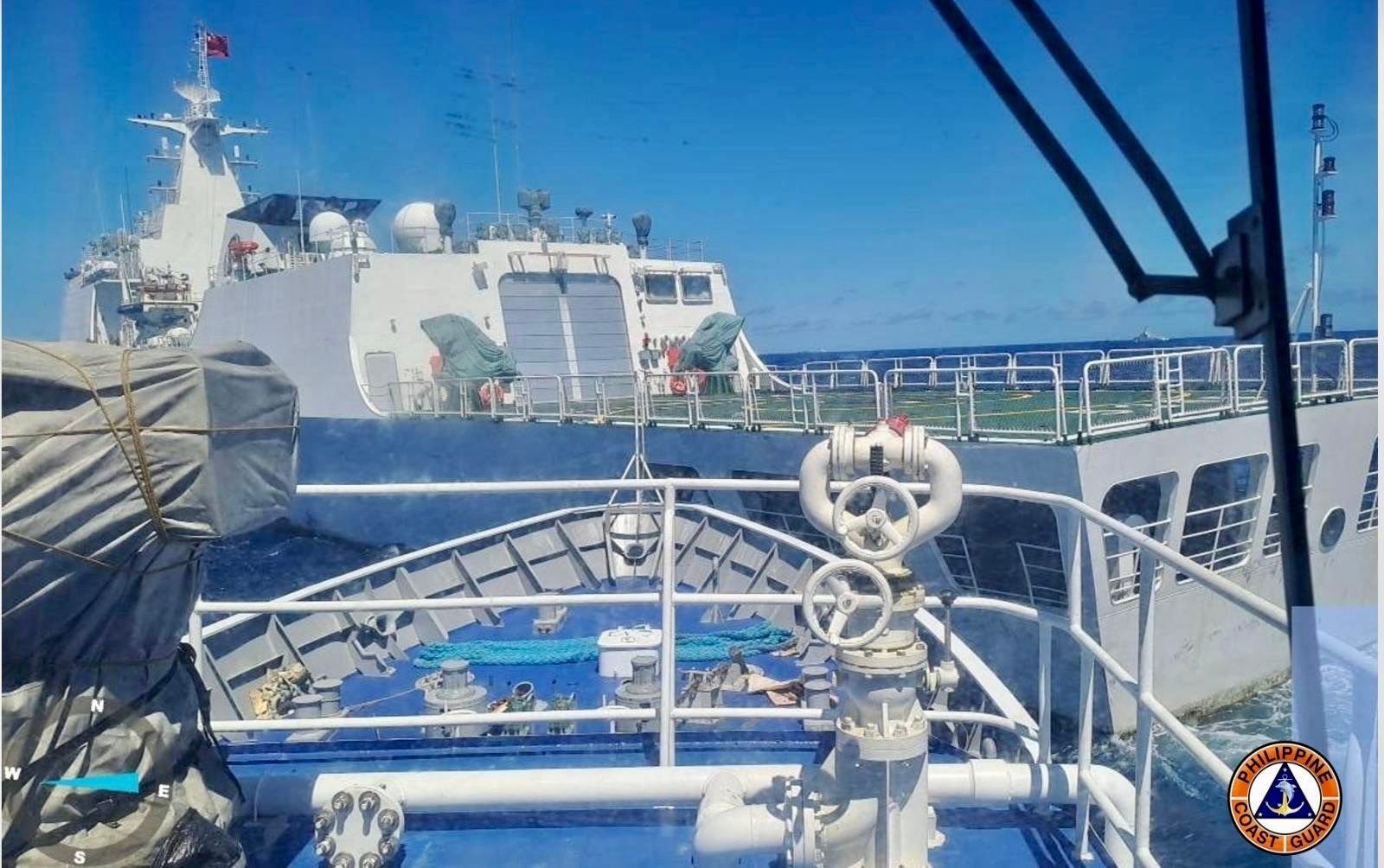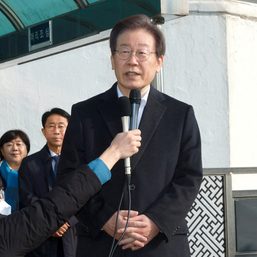SUMMARY
This is AI generated summarization, which may have errors. For context, always refer to the full article.

MANILA, Philippines – Days after Chinese Coast Guard and Chinese militia vessels harassed and sprayed water cannons towards Philippine ships, the South Korean Embassy in Manila issued a short but rare statement criticizing the Asian superpower for “raising tensions” in the South China Sea.
“On the recent use of water cannons against the Philippine Coast Guard vessels in the South China Sea, the ROK Embassy in the Philippines is concerned about the actions that raise tensions in these waters,” said the embassy in a Facebook post on August 8.
“The Embassy reaffirms its support for peace, stability, and rules-based order in the South China Sea, as an important international sea lane of communications, and for the freedom of navigation and overflight based on the principles of international law, including UNCLOS,” it added, referring to the international law that is the basis for a 2016 arbitral ruling that quashed China’s sweeping claim on the South China Sea.
The statement came a few days after most other Philippine allies first criticized China for the August 5 incident. Yet its impact more than makes up for its delay: South Korea’s statements on China, the Philippines, and tensions over the South China Sea have been terse and rare, thanks in part to its own issues with China.
Seoul and Beijing, Manila and Beijing
Back in 2016, when The Hague issued the award on July 12, South Korea’s response was terse.
Seoul said: “The Government of the Republic of Korea has consistently held the position that the freedom of navigation and overflight should be safeguarded in the South China Sea, one of the world’s major sea lines of communication, and that disputes in the South China Sea should be resolved in accordance with relevant agreements, non-militarization commitments, as well as internationally established norms of conduct.”
Its government then “took note” of the decision – but it did not explicitly say if it was supportive of the 2016 ruling or not: “The Government of the Republic of Korea takes note of the arbitration award issued on July 12, and hopes, following the award, that the South China Sea disputes will be resolved through peaceful and creative diplomatic efforts.”
Seoul sees Beijing as a key ally in “restraining” North Korea. Just like the Philippines, China is South Korean’s top trading partner.
Points of conflict have been similar to that between Manila and Beijing – conflict over shipping vessels and China’s military incursions into South Korea’s exclusive economic zone.
Their relationship has gone through ebb and flow, just like Sino-Philippine ties. It also just so happens that the two countries’ bilateral ties with China are turning tense in the past few months – thanks, in part, to Beijing itself.
The Council on Foreign Relations, a US-based think tank, sees growing friction in South Korea and China’s bilateral ties as Beijing tries to halt Seoul’s increasing close ties to Washington DC.
A June 2023 briefer released by the Council of Foreign Relations warned China’s actions might actually draw the US and South Korea closer.
In early June 2023, Seoul summoned Beijing’s envoy over his remarks warning South Korea about making “wrong bets” in the competition between China and the US. Earlier this year in April, China’s envoy in Manila courted controversy over his “advise” for the Philippines not to side with Taiwan in its conflict with China.
Manila managing the superpowers
President Ferdinand Marcos Jr., in power for just over a year, had made it policy to be “friend to all, enemy to none,” especially in the context of the superpower competition between Beijing and Washington.
Marcos has visited both countries in 2023 – China in a state visit and the US for an official visit, which included a trip to the White House and the Pentagon.
Even as he’s promised to keep Manila in the middle through closer ties with fellow middle powers and being friends with both the US and China, he’s also worked to add on to a decades-old commitment to the US. In his first year, four more military bases were opened up for the use of American boots. Washington and Manila have also come up with bilateral defense guidelines, with joint coast guard patrols in the South China Sea in the works. – Rappler.com
Add a comment
How does this make you feel?

![[ANALYSIS] The West Philippine Sea dispute and the stock market’s performance](https://www.rappler.com/tachyon/2024/06/thought-leaders-west-ph-sea-dispute-and-market-performance.jpg?resize=257%2C257&crop=134px%2C0px%2C720px%2C720px)












There are no comments yet. Add your comment to start the conversation.